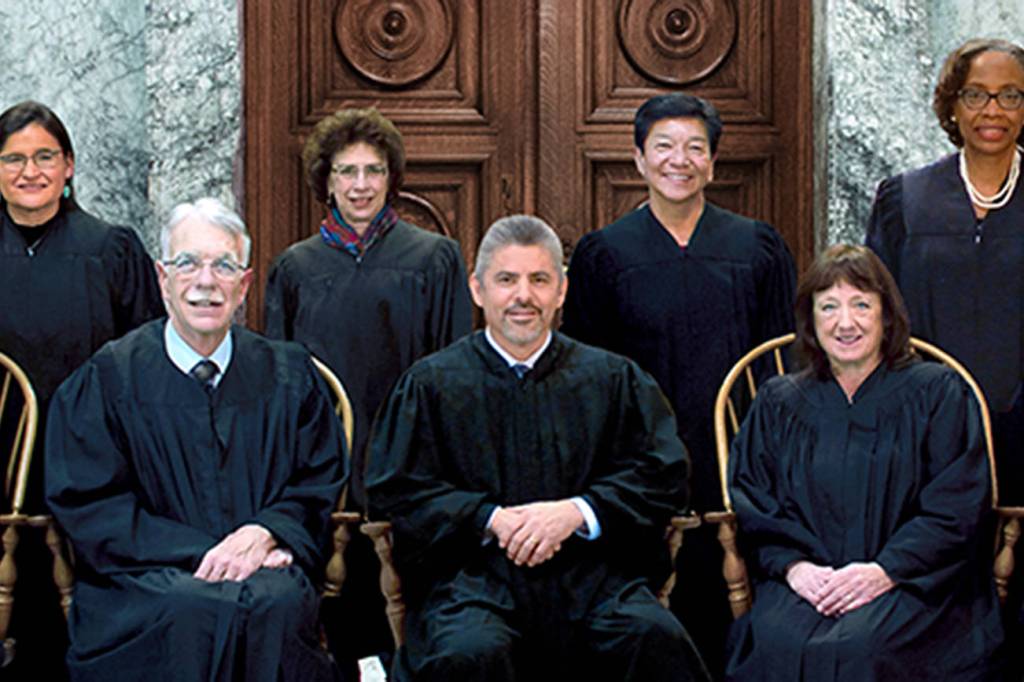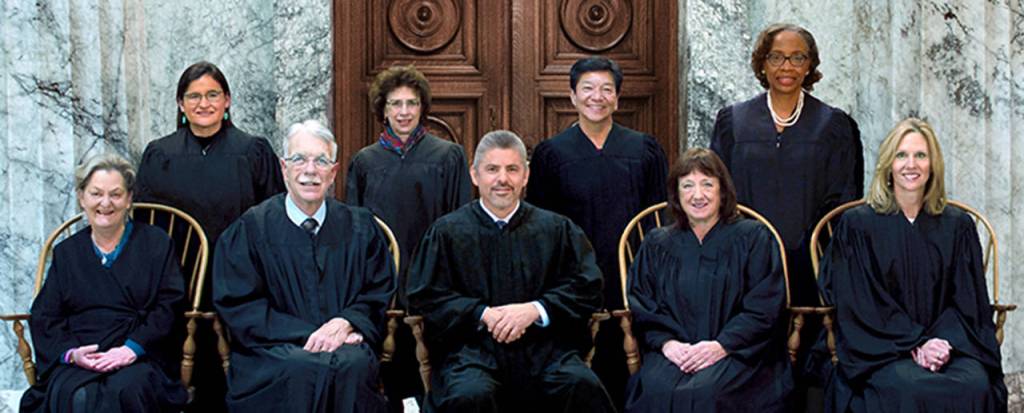Justices nix state drug possession law; authorities react
Published 1:30 am Thursday, February 25, 2021


EVERETT — Snohomish County’s top law enforcement officials are scrambling to assess the full impacts of a Thursday state Supreme Court ruling striking down the Washington law that makes simple drug possession a crime.
Local authorities can no longer arrest someone solely because the person has a few grams of heroin, methamphetamine, cocaine or other illegal drugs — unless, however, there is suspicion that the individual intended to deliver those drugs, according to Snohomish County Prosecutor Adam Cornell.
The now-stricken law made possession of a controlled substance a felony punishable by up to five years in prison and a hefty fine. Five justices, led by Justice Sheryl Gordon McCloud, said in the ruling the statute was unconstitutional because it doesn’t require prosecutors to prove that someone knowingly or intentionally possessed the drugs.
About a half-dozen people will be released from the county jail “as soon as possible” as a result of the decision, Cornell said. Those inmates were awaiting trial for simple drug possession alone, or serving sentences after being convicted of only those charges.
Pending criminal cases in which simple drug possession is the only charge will also be dismissed, he said.
Prosecutors, public defenders, police and lawmakers across the state are delving into the far-reaching implications of the decision.
Convictions could be vacated for people found guilty of simple drug possession in the past. And there’s not yet a clear consensus on what the decision will mean for people who were given longer sentences for other crimes because of prior simple drug possession offenses — a common outcome of the state’s offender “scoring” system.
Under another state law, possession of a controlled substance remains illegal if there is intent to distribute, sell or otherwise deliver the substance.
Police can also still arrest people for possession of drug paraphernalia, Cornell said.
Snohomish County Sheriff Adam Fortney expressed shock in the ruling in a post to his Facebook page Thursday morning.
“I was notified this morning that the Supreme Court found Washington State law against drug possession to be unconstitutional. No, this is not a joke this actually happened today,” he said in the post. “I have a meeting later in the day with our Prosecutor to try and work through what exactly this means moving forward. When I have more information I will share it but to speculate now wouldn’t be helpful.”
Island County Sheriff Rick Felici said in a written statement that the effects of the decision will be “widespread to say the least.”
“While it could be argued that this change will reduce the number of people incarcerated in the state, and that drug abuse is better treated as a public health issue, this change will also have an impact on the number of people who were motivated to get into treatment as a result of their arrest,” Felici wrote. It will also “impact law enforcement’s ability to ‘work their way up the chain’ to get to drug dealers,” he added.
Other advocates who work with people struggling with substance abuse applauded the court decision, saying the simple possession law criminalized addiction and did little to address the root cause of the problem.
“If punishment were deterring addiction, we wouldn’t be in the heroin epidemic that we have been in,” said Kathleen Kyle, managing director of the Snohomish County Public Defenders Association. “If anything, it just compounds the issue.”
As of Thursday, the association had roughly 260 pending cases involving charges of simple drug possession, Kyle said. She noted that some of those cases included other charges, too.
The ruling is a step toward a more equitable criminal justice system, she said.
“Everyone will benefit from this decision, but our minority communities, our lower socio-economic communities will benefit more because they have been targeted more by enforcement,” Kyle said.
State Rep. Lauren Davis, strategy director of the Washington Recovery Alliance, said the decision “gives renewed urgency to the conversation about our state’s response to untreated substance use disorder.”
Davis, a Democrat whose district includes Lynnwood and Edmonds, sponsored a bill this legislative session that would eliminate some of the criminal penalties for drug possession and expand treatment and support services.
“We must stop criminalizing symptoms of a treatable brain disease,” Davis said in an email. “Today’s decision does that. But that alone is insufficient. It is equally important that we build out a response to substance use disorder that truly works — a robust and fully funded continuum of care ranging from outreach to treatment to recovery support services.”
Defendants in many of Snohomish County’s pending cases of simple drug possession are already in programs that allow them to get help instead of serving time, said Cornell, the county prosecutor. For example, eight defendants in simple drug possession cases are participating in the county’s Adult Drug Treatment Court, where a judge monitors them while they’re connected to rehabilitation services.
“We have been compassionately and thoughtfully prosecuting those cases, by and large, to get people treatment,” Cornell said. “Those people are going to be released from those programs because we can no longer sustain prosecution.”
Until the decision, Washington was the only state that did not require proof of intent for drug possession to be considered a crime, according to the state Supreme Court ruling in the case, known as State v. Blake.
But the ruling does not clarify what constitutes intent to deliver, leaving that key legal question to local prosecutors and police to answer for now.
“Police and prosecutors are going to have to ask in individual cases, ‘Was the amount of the controlled substance an amount such that we could establish an intent to deliver?’” Cornell said. “Possession with intent is not going to be somebody who has a gram or two of heroin on them.”
If authorities come across someone with heroin plus a scale, multiple plastic bags and a ledger, however, there might also be suspicion of intent to deliver the drugs, Cornell added.
The state Legislature could rewrite the stricken statute to include standards for proving intent.
Those counting on lawmakers for any kind of guidance could be disappointed, at least in the near future.
With the session nearly half over and a pandemic forcing lawmakers to work virtually, it would be very difficult to negotiate agreement on any legislation.
“I don’t know what direction we’re going to go. I want to hear from everybody,” said Rep. Roger Goodman, D-Kirkland, chairman of the House Public Safety Committee, where any bill would be considered.
Even before Thursday’s decision, many House Democrats had embraced efforts to decriminalize possession of small amounts of narcotics.
“I think the Legislature is going to have to take action on this,” Goodman said. “I can’t say what that might be.”
Herald reporter Jerry Cornfield contributed to this article.
Rachel Riley: 425-339-3465; rriley@heraldnet.com. Twitter: @rachel_m_riley.






